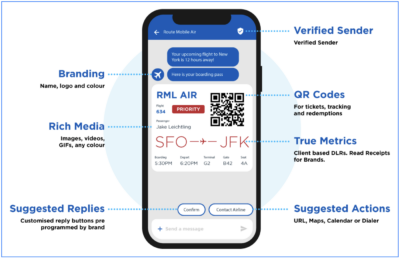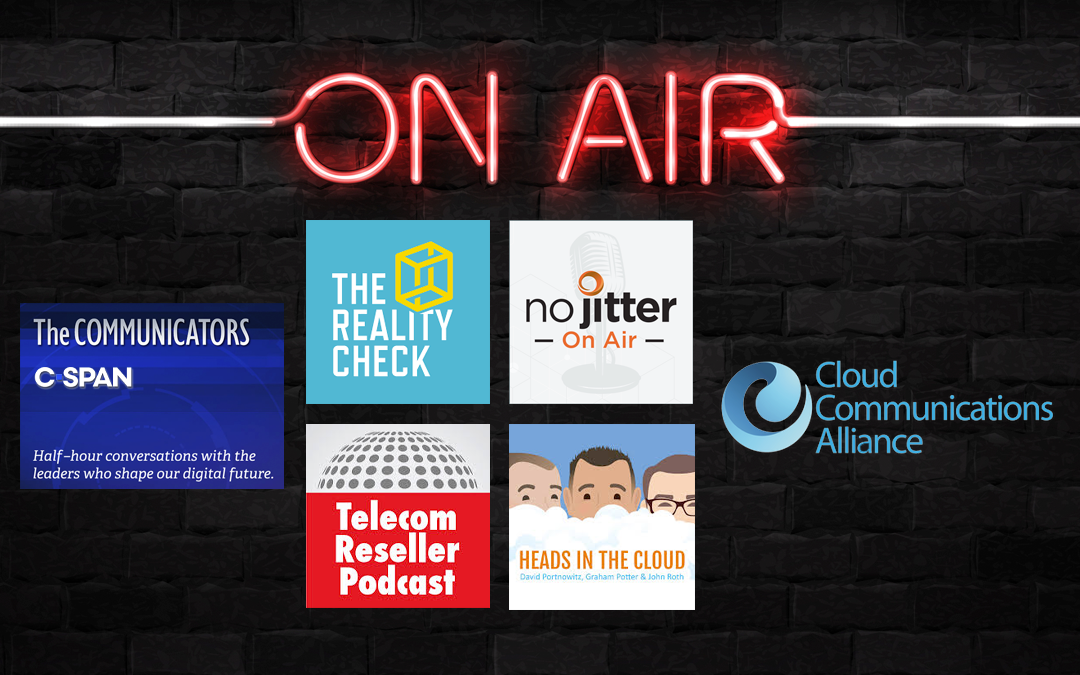How Does RCS Stack Up Against SMS/MMS and What’s Next for Commio in 2025
Rich Communication Services (RCS) is one of the latest evolutions in messaging technology, promising a more interactive, feature-rich experience than traditional SMS and MMS.
In the fast-paced world of cloud communications, staying at the forefront of technology can make all the difference in customer engagement and satisfaction. As messaging technology continues to develop, RCS presents an opportunity to transform how businesses interact with their customers. Here, we’ll break down what RCS is, how it compares to SMS and MMS, and how Commio plans to leverage this technology in 2025 to enhance the communication experience for businesses and their customers.
What Is RCS?
Rich Communication Services, or RCS, is a protocol designed to improve and modernize the messaging experience on smartphones. Think of RCS as an upgrade to traditional SMS and MMS, offering a wider range of capabilities that make interactions richer, more dynamic, and more informative.
Unlike SMS, which has limitations on character count and multimedia support, RCS allows for:
- Rich Media Messaging: Businesses can send high-quality images, videos, and GIFs without the compression issues that plague MMS.
- Interactive Elements: RCS enables buttons, carousels, and forms within messages, which allow customers to take direct actions without leaving the message thread.
- Read Receipts and Typing Indicators: Similar to popular chat apps, RCS includes typing indicators, read receipts, and delivery confirmations, enhancing communication transparency.
- Enhanced Branding: RCS supports company logos and brand colors, allowing businesses to create a fully branded messaging experience.
- Location Sharing: Users can share and receive location information, adding a layer of context to conversations.
- End-to-End Encryption: Unlike SMS, which is sent in plain text, RCS supports end-to-end encryption for secure, private communications.
RCS is essentially the bridge between traditional messaging and the interactive, media-rich experience offered by apps like WhatsApp and Facebook Messenger. It’s a compelling proposition for businesses looking to drive engagement, build brand loyalty, and facilitate seamless customer interactions.

How Does RCS Compare to SMS and MMS?
While SMS and MMS have been the backbone of mobile messaging for years, RCS represents a significant leap forward. Here’s how these messaging protocols stack up against one another:
1. Media Richness
– SMS: Text-only with a 160-character limit, SMS is effective for short, direct messages, but it lacks multimedia capabilities.
– MMS: MMS allows images, videos, and audio clips but is limited in quality, often resulting in compressed, lower-quality media.
– RCS: RCS supports high-quality images, GIFs, videos, and audio clips without the limitations of MMS, delivering a visually appealing experience.
2. Interactivity
– SMS: Limited to static text, SMS requires recipients to take additional steps (like clicking on links) to interact further.
– MMS: Though multimedia is supported, MMS lacks interactivity features like buttons or carousels.
– RCS: With features like clickable buttons, carousels, and action forms, RCS enables a more interactive, app-like experience within the messaging interface, allowing users to engage without leaving the thread.
3. Feedback and Transparency
– SMS and MMS: Neither SMS nor MMS supports read receipts or typing indicators, limiting feedback on message delivery and engagement.
– RCS: RCS includes delivery and read receipts, as well as typing indicators, providing real-time feedback and transparency between businesses and customers.
4. Branding and Authentication
– SMS and MMS: Branding is limited to text identification; businesses can’t add logos, colors, or authentication markers.
– RCS: RCS offers verified sender identification, company logos, and branding elements, which boost brand recognition and build trust by verifying the sender’s identity.
5. Security
– SMS: SMS lacks encryption, making it susceptible to interception and less secure for sensitive information.
– MMS: Although multimedia is supported, MMS also lacks encryption and can present similar security risks.
– RCS: RCS supports end-to-end encryption, offering a higher level of security that’s suitable for sensitive communications.
The Value of RCS for Businesses
RCS opens a new realm of possibilities for businesses by merging the best features of traditional messaging with the engagement potential of modern apps. Here’s how it can benefit organizations:
– Increased Engagement: The visual and interactive nature of RCS means users are more likely to engage with messages, leading to higher click-through rates and conversions.
– Better Customer Experience: The ability to provide an app-like experience within the messaging platform improves customer satisfaction by streamlining interactions and eliminating the need for additional apps.
– Improved Branding and Trust: Verified sender identification and brand elements enhance trust, making customers feel secure about who they’re communicating with.
– Enhanced Security: With end-to-end encryption, businesses can confidently communicate sensitive information without compromising security.
– Cost-Effectiveness: RCS provides an immersive experience that could reduce the need for businesses to develop standalone apps, thereby saving costs on app development and maintenance.
Challenges of RCS Adoption
Despite its advantages, RCS faces a few challenges:
– Device and Carrier Compatibility: RCS requires support from both the carrier and the device. While it’s widely available on Android devices, support across carriers and operating systems is still growing.
– Apple iOS Support: Apple’s Messaging app supports RCS on phones running OS 18.1 or newer. This was a limitation to RCS’s universal reach, especially in markets where iOS is popular. Now the clock is running to get newer phones into customer’s hands running the latest OS to support RCS.
– Consumer Awareness: Many consumers are still unfamiliar with RCS, meaning adoption will require both consumer education and effective use cases from businesses.
Commio’s Vision for RCS in 2025
At Commio, we believe in providing businesses with powerful tools that drive customer engagement and facilitate seamless communication. Recognizing the potential of RCS to transform business messaging, we’re currently working on integrating RCS capabilities into our platform, with plans to roll out this functionality in 2025.
Here’s how we’re approaching RCS integration at Commio:
1. Seamless API Access
Just like with our current SMS and MMS solutions, we’re developing an RCS API that makes it easy for businesses to integrate RCS messaging into their existing communication workflows. Our goal is to provide a unified messaging API that allows businesses to choose the best format—SMS, MMS, or RCS—for each message, depending on the recipient’s device capabilities.
2. Enhanced Rich Media Support
Our RCS solution will support high-quality media, clickable buttons, carousels, and other interactive elements that can make customer interactions more engaging. By integrating these features, we’ll help businesses improve their messaging efficiency and engagement rates.
3. Branding and Verification
To enhance trust and recognition, our RCS offering will include brand verification and customization options, allowing businesses to add logos and brand colors to messages. With these features, our clients can create a consistent and trustworthy messaging experience for their customers.
4. End-to-End Encryption and Security
All RCS platforms will support end-to-end encryption, ensuring that sensitive information remains private and secure throughout the messaging journey.
5. Scalable and Cost-Effective Solution
We’re committed to building a scalable RCS solution that aligns with the needs of businesses of all sizes, from small startups to large enterprises. By offering flexible pricing models, we’ll help our clients adopt RCS in a cost-effective way, making advanced messaging accessible to more businesses.
Get Ready for the Future of Messaging with Commio
As the messaging landscape continues to evolve, Commio is dedicated to equipping businesses with the tools they need to stay ahead. With our planned RCS offering, we’re excited to bring our clients the benefits of interactive, media-rich messaging that can transform customer engagement.
Stay tuned as we develop our RCS capabilities, preparing to bring a new level of flexibility, branding, and security to business messaging in 2025. The future of messaging is bright, and with Commio, you’ll be ready to harness the full power of RCS to drive your communication strategy forward.
















